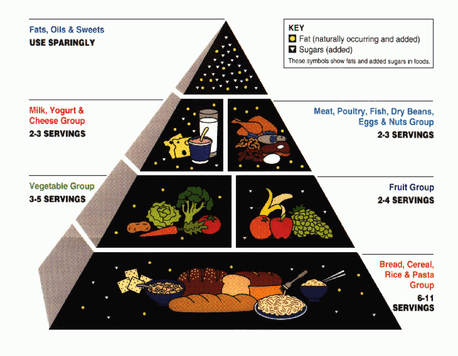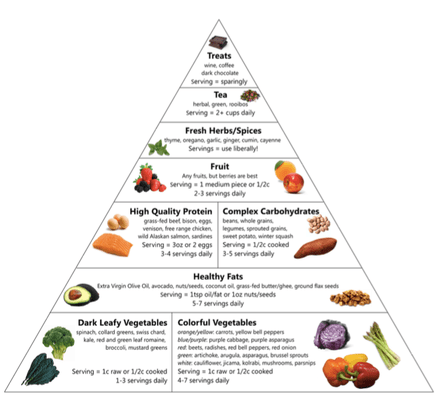At Wellness Minneapolis we talk about reducing sugar intake…a lot. What’s the big deal with sugar? As a person who struggles with several ‘sweet teeth’ let me tell you there is a big problem. Not only is sugar incredibly damaging to our bodies but it is also a hard habit to break. Several research studies have shown it can be as addictive as drugs such as cocaine 1. When we eat carbohydrates they are broken down in to sugar, which enters our blood stream. The glycemic index was created to explain how different kinds of carbohydrates directly affect blood sugar. Foods with a low glycemic index like whole oats are digested slowly which only causes a gradual rise in blood sugar. Foods such as a white potato have a high glycemic index and can spike blood sugar quickly. Our bodies use sugar, fat and protein for fuel. Interestingly, a human can survive consuming zero carbohydrates (sugar) and instead acquire all energy from proteins and fat. Carbohydrates are not a required food group as some old food pyramids (below) would have you believe. This doesn’t mean that we should remove all carbohydrates from our diets but we should be cautious with our intake and instead focus on a diet high in vegetables.
Increased risk for:
- Dementia 2,3
- Heart disease 4
- Obesity
- Type 2 Diabetes
- Non Alcoholic Fatty Liver Disease (NAFLD)
Even in people who don’t have chronically high blood sugar (diabetes) elevated blood sugar is associated with dementia. 5 Even in healthy people, having your blood sugar be closer to the higher end of the range of normal can have negative effects on your brain. Pretty shocking!
When we think about dietary risk factors for heart disease sugar is not usually high on the list, but it should be! A 20-year prospective study of 82,802 women looked at the relationship between lower carbohydrate diets and heart disease. Women who ate low-carbohydrate diets had a 30 percent lower risk of heart disease. It is important to note that the benefit was higher when the protein and fat sources were obtained from vegetables.6 More evidence of the heart benefits from a lower-carbohydrate approach comes from a randomized trial known as the Optimal Macronutrient Intake Trial for Heart Health (OmniHeart) A healthy diet that replaced some carbohydrate with protein or fat did a better job of lowering blood pressure and “bad” LDL cholesterol than a healthy, higher-carbohydrate diet. 7,8
NAFLD is quickly becoming the most common liver disease worldwide. This condition is almost entirely related to overconsumption of carbohydrates. The vast majority of NAFLD cases develop in conjunction with insulin resistance or metabolic syndrome. This preventable liver disease is also becoming a major cause for liver transplants. Patients with elevated blood sugar will try to limit the glycemic load by consuming sweeteners high in fructose such as agave. High fructose sweeteners advertise on their label that they are low glycemic and therefore have less effect on blood glucose levels. This is true, but what the label doesn’t tell you is that fructose is much more damaging to the liver and a causative factor in NAFLD 9. I recommend patients avoid sweeteners high in fructose, especially high fructose corn syrup.
There is no perfect diet that everyone should follow but if you have a family or personal history of diabetes, dementia, obesity, heart disease or fatty liver disease you may want to consider limiting your sugar intake and consuming whole grain carbohydrates in moderation.
The pyramid below represents an anti-inflammatory diet rich in vegetables, healthy fats, protein and whole grain carbohydrates in moderation.
| foodpyramid.pdf |
1.Ahmed, SH. Guillem, K. Vandaele Y. Sugar addiction: pushing the drug-sugar analogy to the limit. Curr Opin Clin Nutr Metab Care. 2013 Jul:16(4): 434-9
2.Crane PK, Walker R, Hubbard RA, et al. Glucose Levels and Risk of Dementia. The New England journal of medicine. 2013;369(6):540-548. doi:10.1056/NEJMoa1215740.
3.Ohara T. Doi Y, Ninomiya T. Hirakawa Y et al. Glucose tolerance status and risk of dementia in the community: the Hisayama study. Neurology. 2011 Sep 20;77(12):1126-34.
4.Quanhe Yang, PhD1; Zefeng Zhang, MD, PhD1; Edward W. Gregg, PhD2; et al
Added Sugar Intake and Cardiovascular Diseases Mortality Among US Adults JAMA Intern Med. 2014;174(4):516-524
5.Ravona-Springer R, Schnaider-Beeri M. The association of diabetes and dementia and possible implications for nondiabetic populations. Expert review of neurotherapeutics. 2011;11(11):1609-1617. doi:10.1586/ern.11.152.
6.Halton TL, Willett WC, Liu S, et al. Low-carbohydrate-diet score and the risk of coronary heart disease in women. N Engl J Med. 2006;355:1991-2002.
7.Appel LJ, Sacks FM, Carey VJ, et al. Effects of protein, monounsaturated fat, and carbohydrate intake on blood pressure and serum lipids: results of the OmniHeart randomized trial. JAMA. 2005;294:2455-64.
8.Swain JF, McCarron PB, Hamilton EF, Sacks FM, Appel LJ. Characteristics of the Diet Patterns Tested in the Optimal Macronutrient Intake Trial to Prevent Heart Disease (OmniHeart): Options for a Heart-Healthy Diet. Journal of the American Dietetic Association. 2008;108(2):257-265. doi:10.1016/j.jada.2007.10.040.
9.Vos MB, Lavine JE. Dietary fructose in nonalcoholic fatty liver disease. Hepatology 2013 Jun;57(6):2525-31.
| Dr. Sara Jean Barrett is a registered Naturopathic Doctor and co-founder of Wellness Minneapolis. She is also the President of the Minnesota Association of Naturopathic Physicians and a Member of the American Association of Naturopathic Physicians. Click here to learn more about Dr. Barrett. |




 RSS Feed
RSS Feed